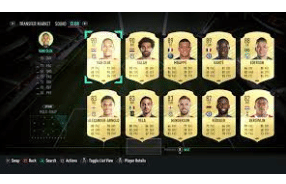After more than four years of discussion, there finally seems to be clarity about whether the FIFA Packs should be seen as gambling under Dutch legislation.
The Administrative Jurisdiction Division of the Dutch State Council ruled last month that FIFA’s card packs do not qualify as a game of chance, because they form an ‘inseparable part’ of a game of skill: the FIFA Ultimate team mode.
As this court is the highest administrative court in the Netherlands, lodging an appeal is not an option for the Dutch Gambling Authority and this ruling is a landmark case for the treatment of loot boxes under Dutch gambling legislation.
This article takes a closer look at the ruling and its possible consequences for the global video games industry.
First, it is necessary to outline the Dutch legal framework.
The Dutch Gambling Act
The Dutch gambling laws are codified in the Dutch Gambling Act (“Wet op de Kansspelen”).
Under this law it is prohibited to offer a game of chance to a person on Dutch territory, except in case the company that offers this game has received a permit of the Dutch Gambling Authority (“de Nederlandse Kansspelautoriteit”).

René Otto, Van Iersel Luchtman
The Dutch legal definition of a ‘game of chance’ contains two criteria that have to be met:
- A participant to the game should have an opportunity to win prizes or premiums
- The winner of the game is determined by chance
The criterium that the participant has an opportunity to win a ‘prize or premium’ means that the participant should be able to obtain something of economic value in case that he/she/they wins. This could either be money or an item of economic worth.
The criterium that the outcome of the game is determined by chance means that the participant cannot influence the outcome of the game by his/her/their own actions.
One can imagine that there could be quite a few scenarios where both skill and chance are in play. In those cases, a game is still considered a game of chance, except when the participant can exercise a predominant influence of the outcome of the game with his/her/their skill. So games where chance is the major contributor to the outcome of the game are still considered games of chance.
Whether this is the case has to be assessed by evaluating the results that the (large) majority of the players achieve by playing the game. This assessment method has the consequence that even if a few very skilled players are able to determine their outcome by their unusual high level of skill (such as by having extraordinary senses or by spending a lot of time on training), the game will still be considered a game of chance if the vast majority of players rely on luck.
The ruling of the Dutch State Council
The decision of the Dutch State Council is rather brief and only takes up nine pages. The judge starts with the consideration that in the case of loot boxes, it must first be established whether obtaining or opening them can be regarded as a standalone game. Only if a loot box is a standalone game should it be assessed whether a loot box meets the definition of a game of chance. According to the judge, in order to determine this, it is necessary to look at how the game is played by the majority of players.
The actual in-game economy will be of high importance when assessing the legality of loot boxes
In the case of FIFA Ultimate Team, the judge considers that this is a (mixed) game of skill, because in the end the virtual football matches are won by the best player. The FIFA packs are considered part of this mode, as the packs are acquired and opened in this mode (and would only be opened to get good players for playing the virtual football matches).
According to the judge, the fact that it is possible to buy FIFA packs with real money does not make the situation any different. The judge attaches particular importance to the fact that 92% of the FIFA packs would be obtained by playing the game and only 8% are bought.
In light of the foregoing, FIFA packs are seen as an integral part of FIFA Ultimate Team, which is considered a game of skill. As a result, the Dutch State Council considers that Dutch gambling legislation does not apply to loot boxes and their offering is therefore not prohibited.
According to the Dutch State Council, it could be different in a specific case if it is shown that loot boxes are opened on a large scale for the sole reason of trading their contents.
A first analysis of this decision and its consequences
In all honesty, I find this ruling quite unexpected and surprising. The reason for this is that the Dutch State Council introduces a new standard of assessment.




